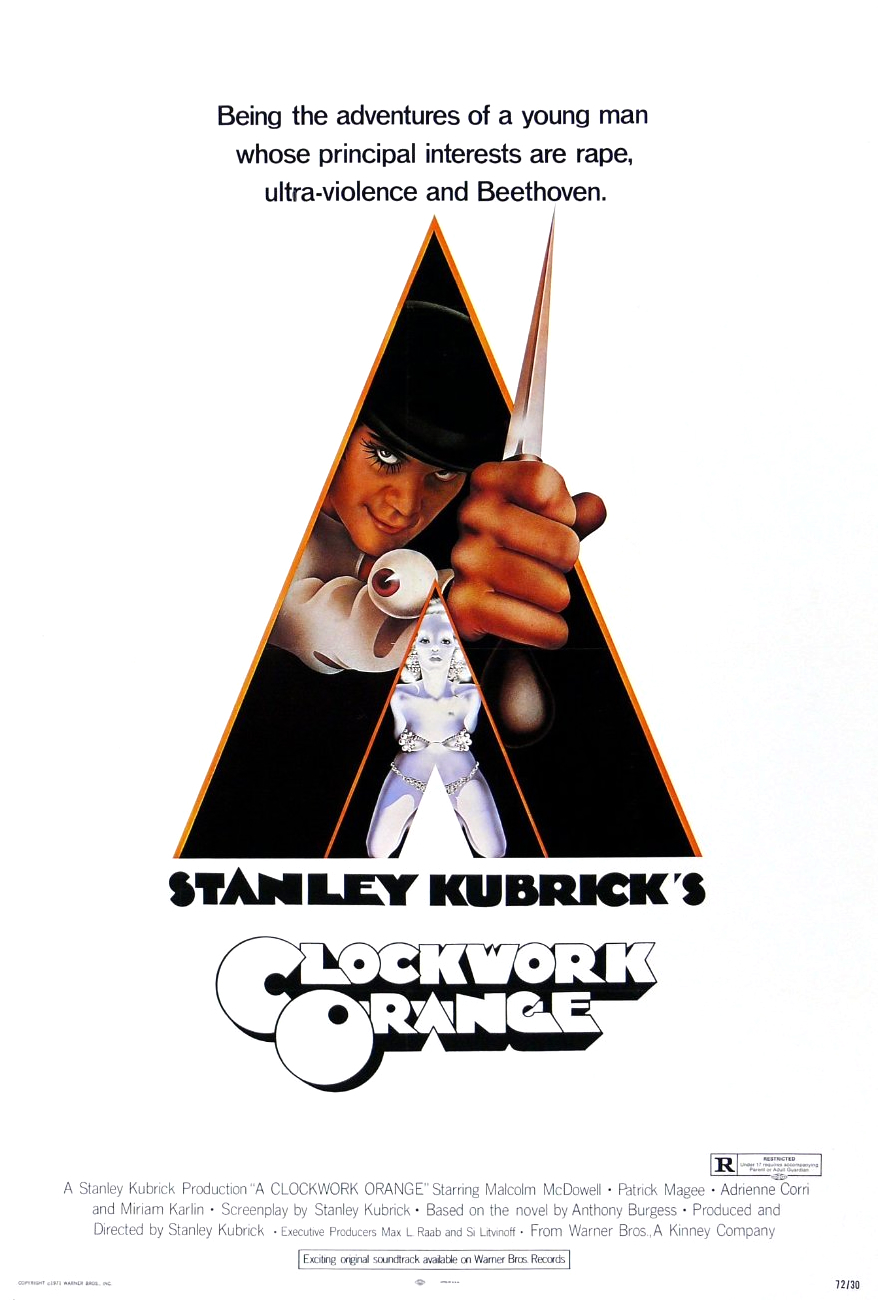A breathtaking representation of society in A Clockwork Orange
This 1971 classic unpacks psychological themes that leave significant impacts on today’s viewers.
Spoiler warning: this article mentions detailed plot points from A Clockwork Orange.
Released in 1971, and based on Anthony Burgess’ novel of the same name, it is no secret that Stanley Kubrick’s A Clockwork Orange (1971) broke new ground in cinema. From its deeper meanings pertaining to free will and humanity to its truly distinctive stylistic elements, the film is complex—even though its storyline is relatively simple.
A Clockwork Orange follows a gang of juveniles led by Alex DeLarge (Malcolm McDowell)—a teenager obsessed with Beethoven and ultraviolence. The teens spend their nights committing heinous acts for the sake of appealing to their own fantasies. After the group gets caught by the authorities, Alex is arrested. Once in solitary confinement, Alex is presented with an opportunity to reduce his sentence if he agrees to take part in an experimental therapy program. He reluctantly agrees. As a result, Alex is forced to become devoid of the violence that shapes his character.
Multiple academic analyses have been done since this film’s release. Many critics pose questions with relation to the essence of evil. Based on Alex’s gang and their violent acts, it becomes easy for viewers to associate the gang with evil. However, the definition of evil becomes blurred once Alex is re-educated at the hands of the State—are they not evil for forcefully removing Alex’s sense of free will and turning him into a servant of the government? After Alex leaves prison, he notices his old friends still committing violent acts. These crimes are suddenly acceptable as his friends acquire the titles of officers—an interesting insight into the often-unjust workings of the State.
Outside of his violent nature, Alex’s charm and heightened intelligence are identifiable throughout the film. Coupled with his lack of empathy towards his victims, a psychology study shows that Alex displays symptoms of antisocial personality disorder—a mental health illness where a person shows no regard for ethics. As the film progresses, Alex becomes a tragic product of the world he lives in. Kubrick manages to tell the story of someone torn between good and evil—creating a sympathetic tether between Alex and each viewer. The film’s depiction of a controlling State partners with Alex’s psychological struggles to tell a powerful narrative.
Visually breathtaking and endlessly riveting, the inherent ambiguity in A Clockwork Orange is unlike any other film. With its release, Kubrick posed an important challenge to the film industry on the representation of social conditions—a challenge that often ripples through Hollywood even today.
Photos Editor (Volume 50) — Daanish is wrapping up his final year at UTM, majoring in Technology, Coding & Society, and minoring in Mathematics and Cinema Studies. He's aware of how odd that combination is, but that is enough to describe him in a nutshell. Carrying his cameras wherever he goes, you can find Daanish furiously writing Letterboxd reviews, cheering on the Maple Leafs, and blasting the Jonas Brothers any chance he gets.


